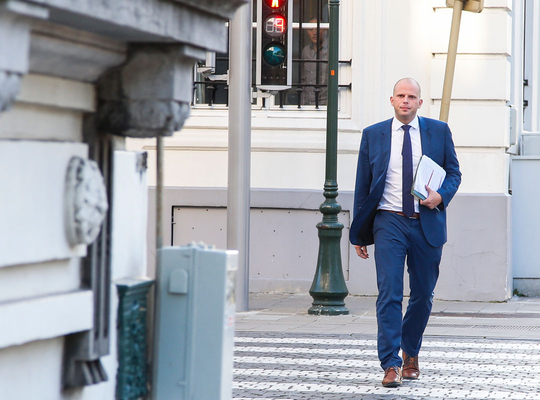You are here
Asylum seekers' profiles on social media can also be checked

To ascertain whether asylum seekers are indeed telling the truth, the Office of the Commissioner General for Refugees can now also look at their profiles on social media. This is one of the adjustments through which the government has transposed the new European asylum procedural directive into Belgian law. “Another important change is that we now retain the original identity documents of asylum seekers during the asylum procedure,” says State Secretary for Asylum and Migration Theo Francken. “Among other things that allows us to examine their authenticity thoroughly.”
The same measure also offers other advantages: for example, we prevent rejected asylum seekers from claiming that they have lost their papers in order to stop their repatriation. Moreover, those who are definitively recognised will no longer get their original documents back, but only a refugee passport. “People getting protection here don’t need to go back to their homeland on holiday,” says Theo Francken.
Examining mobile phones and computers
Although social media are in practice already regularly checked during the examination of asylum applications, the Office of the Commissioner General for Refugees and Stateless Persons (CGVS) has had its knuckles repeatedly rapped by the courts in the past. “In the new law, permission to check the public part of social networks is being set in stone in legal terms,” Theo Francken explains. “From now on, the CGVS will also be able to examine mobile phones and computers, in order to be able to check the nationality and the asylum narrative. The asylum seeker will, however, have to give his or her approval for this to take place, but a refusal to do so will of course not help the credibility of his or her request.”
Appeal procedure tightened
The government is also putting a definitive stop to the phenomenon of language shopping, which is the practice by some rejected asylum seekers of trying to nevertheless obtain recognition by submitting a new asylum application in a different language. In addition, the appeal procedure is being tightened. “Rejected asylum seekers who still had an appeal procedure underway were up to now able to submit multiple asylum applications,” Theo Francken explains. “This practice is also now becoming impossible: submitting an appeal means waiting for the result of that appeal.” In the closed centres, the appeal period is also being reduced from 15 to 10 days. “That also means a shorter procedure and therefore a shorter time of uncertainty for the asylum seeker, as well as lower accommodation costs for the government,” Theo Francken concludes.
For vulnerable profiles too
And finally, the government has also taken a few measures that meet the special needs of vulnerable target groups, including women, minors and asylum seekers with a disability. A woman who has been raped in the country of origin can, for example, elect to remain silent if she is being questioned by a male protection officer. And minors must also be able to express their opinions and be heard officially.

